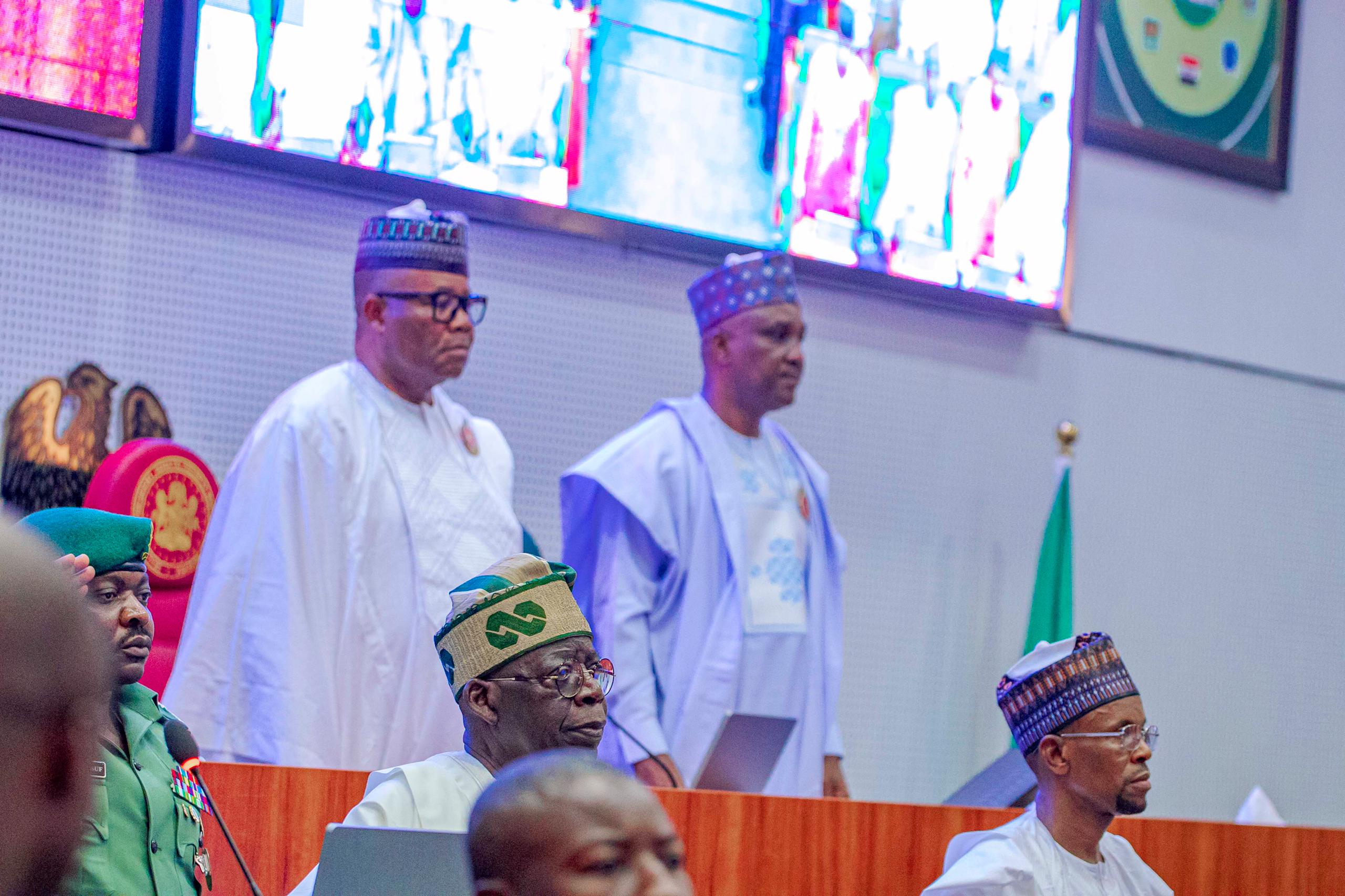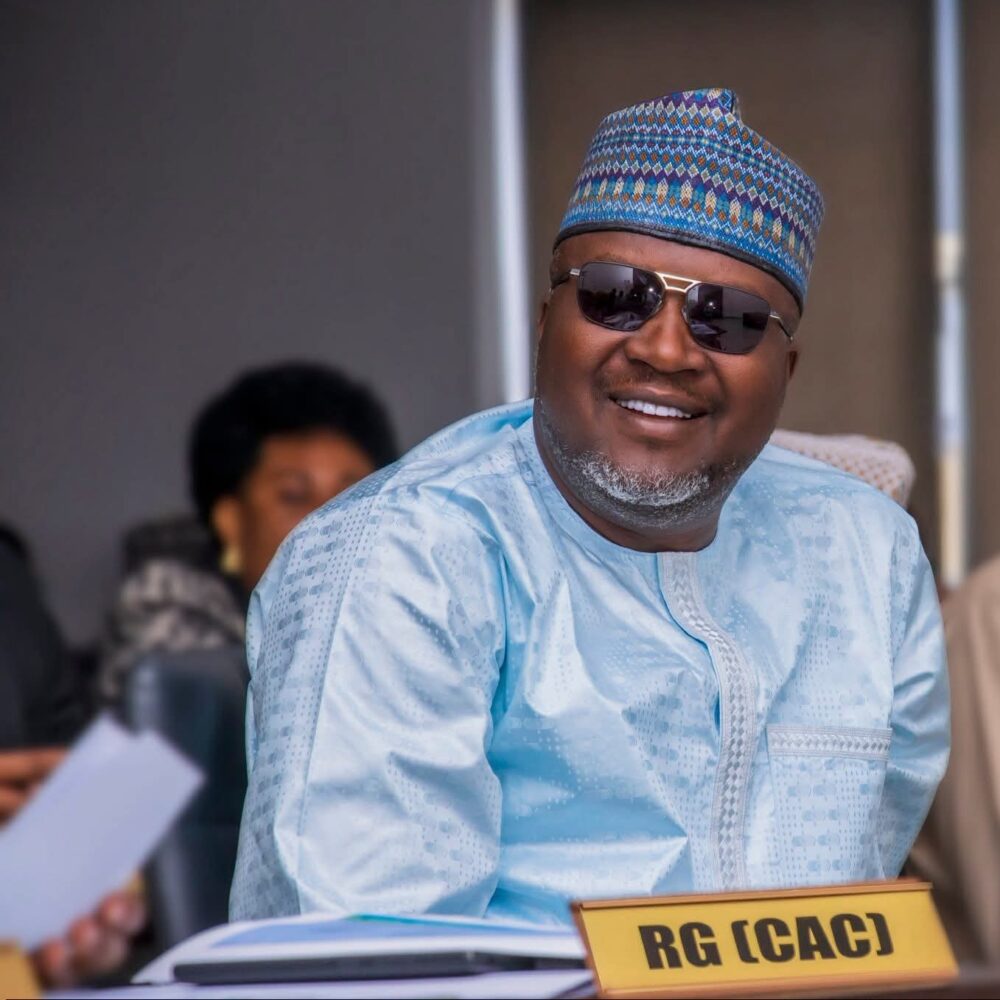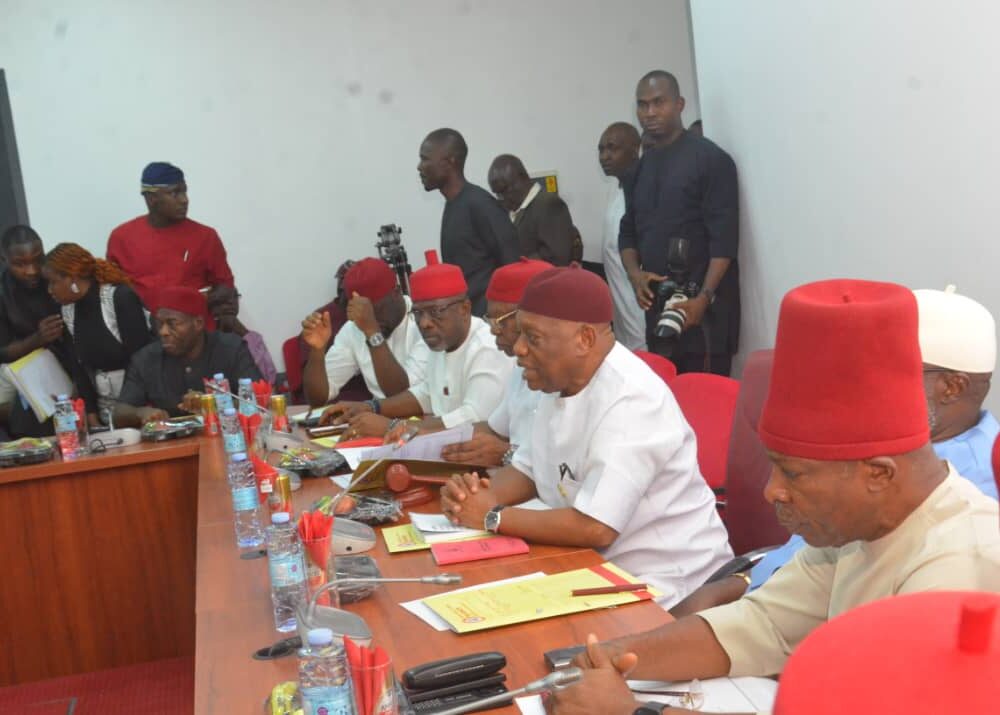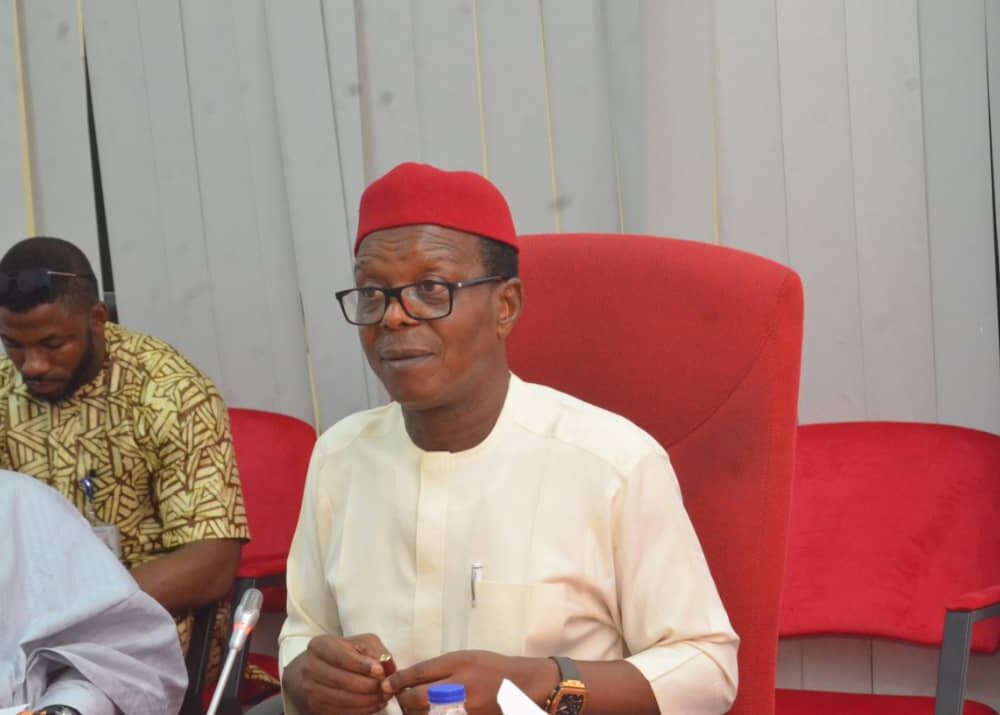The Speaker of the House of Representatives Rt. Hon. Abbas Tajudeen has stated that the 2024 Appropriation Bill “should not be seen as a mere financial document but a reflection of our collective resolve to address the most critical needs of our long-suffering citizens.”
The Speaker made this known in his vote of thanks after President Bola Ahmed Tinubu laid the 2024 budget estimates before a joint session of the National Assembly in Abuja on Wednesday.
President Tinubu presented a proposal of N27.5trillion, and tagged the Appropriation Bill as ‘Budget of Renewed Hope.’
Speaker Abbas, while noting that “it is a well-known fact that millions of our constituents are living through incredibly difficult times,” said it is for this reason that the citizens “also look to the Tinubu-led government to provide quick and sustainable solutions.
This is even as the Speaker got a standing ovation from President Tinubu as he was concluding his speech, in which he noted the president’s antecedents and track record in governance, which he said, “inspire a lot of hope in Nigerians.
“Mr. President, it is for this reason that we cannot afford to fail Nigerians. If anyone can change the rot and chart a new course for Nigeria, IT IS YOU! I have no doubt whatsoever that we can measure up to the expectations of Nigerians through your visionary leadership and the commitment of the National Assembly.”
In order to promote economic growth and development, Speaker Abbas stated that the 2024 budget “should prioritise social welfare programmes to help reduce poverty and inequality.”
He added that job creation and youth empowerment, in view of the large and ever-growing youth population, was equally important.
The Speaker stated: “Failure to do this means failure to invest in our future. This budget must also prioritise investment in education and healthcare, which is critical to human capital development and a more productive workforce. Infrastructure development is another critical area of importance, which is crucial for economic growth.
“The biggest challenge, however, is balancing these priorities within the constraints of available resources.”
The Speaker said due to the related challenge of a high level of public debt, the National Assembly would ensure that the 2024 budget includes “concrete strategies for sustainable debt management, including measures to increase revenue and control expenditure.”
He added: “Specifically, the focus should be on raising more revenue through tax reform, fiscal reform, subsidy reform, foreign exchange convergence, and centralised revenue collection.”
The Speaker recalled that in the recent engagements with Ministries, Departments and Agencies on the Medium Term Expenditure Framework, the lawmakers emphasised the need for revenue-generating agencies to double their targets to meet the N18trn revenue projected in the budget.
Speaker Abbas, however, highlighted some of the perennial problems that he believed had hampered the budget process in Nigeria. “These are well known to Mr. President, who is an experienced ex-legislator,” he said.
Noting that the government budget is an important tool for economic management and promoting growth and development, Speaker Abbas stated that it had generally not met the expectations of improved service delivery and development.
He said: “This has largely been due to challenges relating to budget enactment, budget implementation, and budget oversight. The well-known gaps in the various stages of the budget process underscore the need for budget reforms, including altering relevant sections of the Constitution and existing laws to strengthen the budget process and transform our budget into an authentic tool for development.
Therefore, the Speaker proposed the enactment of a Budget Act to strengthen the budget process and promote development outcomes, saying, “This is a well-established practice in democracies across the world.”
While assuring President Tinubu that the National Assembly would give the bill the utmost priority it deserves and accelerate its consideration, the Speaker stated that the lawmakers would “diligently scrutinise it alongside Nigerians to ensure that when it is passed, it will be a budget that best addresses the most critical needs of our people.”
Speaker Abbas sought the cooperation of all heads of MDAs, especially during budget defence by committees.
Speaker Abbas described President Tinubu’s presence in the hallowed chamber as historic, noting that apart from being the President’s first address to the joint session of the National Assembly as the 16th President of the Federal Republic of Nigeria, it was also “a homecoming” for him as a former member of the Senate.
The Speaker noted that since Tinubu was inaugurated President of Nigeria on May 29, 2023, “all your actions since then have been bold, decisive and purposeful,” adding that, “They indicate your resolve to make decisions that may be hard but necessary to remedy past errors and put Nigeria on the path of economic recovery, security and development.”
As the Speaker concluded his remarks, President Tinubu joined members of the House in applauding the Number 4 Citizen while giving him a standing ovation.





